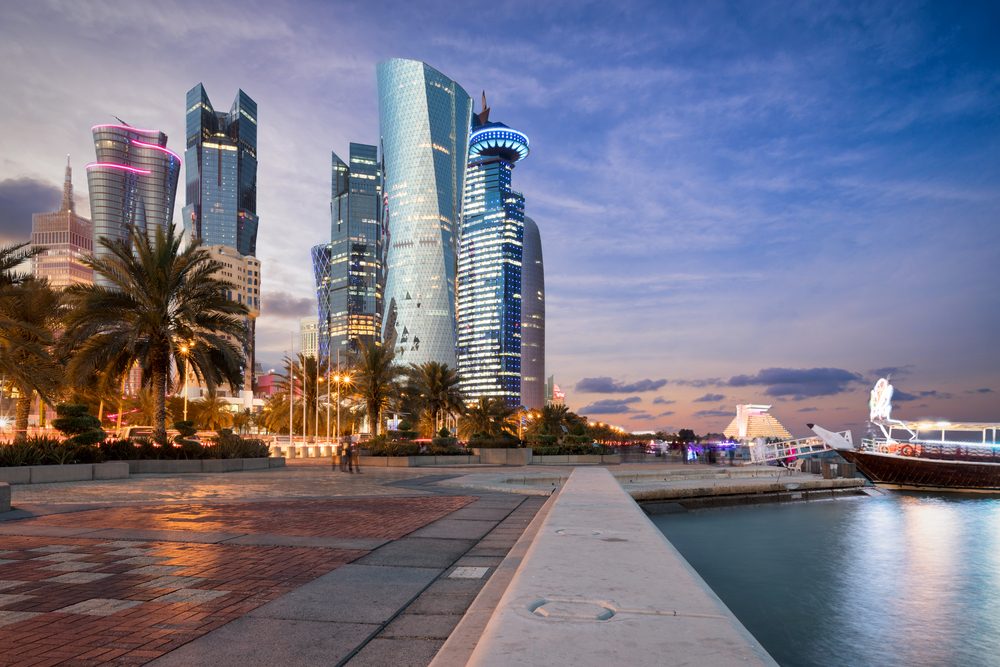PwC Middle East released the third edition of its bulletin on the Qatari economy, showing its resilience during the Covid-19 pandemic.
PwC Middle East’s third edition of its bulletin on Qatar’s economy has revealed the main factors driving the economic transformation in the Gulf state that fall in line with Qatar’s 2030 Vision.
The report noted Qatar’s economy faced some challenges during last year and the first half of 2021, as oil prices in the Gulf took a hit. This led to Qatar facing a total drop of -3.7 percent in economic output.
However, Qatar has had a rapid economic recovery as its energy sector continues to grow, exceeding analysts’ estimates.
“Rapid vaccinations have brought the pandemic under control locally, with leading indicators in 2021 showing signs of a robust recovery,” the report said.
“Higher energy prices, progress in the North Field LNG expansion, restored relations with neighbours and preparations for the World Cup next year are also powerful positive drivers for the economy in the near term,” it added.
In recent months, Qatar has penned major contracts to increase liquid natural gas (LNG) production through the $28.7 billion North Field Expansion project, the world’s largest LNG project in the world.
According to the “Purchasing Managers’ Index” (PMI) scale, expansionary trends that have recently emerged have contributed to the GDP of the non-oil sectors.
While a reading of more than 50 points indicates economic growth, Qatar has averaged at 54 points during the first quarter in the PMI.
Despite Qatar’s Covid-19 restrictive measures imposed in April this year, the PMI remained on the growth side, with Qatar recording 51.5 points.
The report also revealed that Qatar’s restoration of diplomatic ties with the Saudi Arabia, Egypt, UAE and Bahrain following the 2017 blockade will also benefit its local economy.
Read also: Keen on renting out your home to visitors? You may soon be able to
The return of relations is set to push Qatar’s tourism, trade, aviation, banking and financial services sectors even further, with the number of travellers coming from GCC countries is expected to rise significantly in the next coming months.
According to ‘Qatar Monthly Statistics’ report by the Planning and Statistics Authority, visitors from the region contributed to 40 percent in total visitors’ arrivals in May 2021.
Not only will visitors give Qatar a further economic boost, but trade between Qatar and the blockading quartet will contribute to Qatar’s growing economy.
The Gulf State’s trade with others in the region enhances its appeal for foreign investors as a regional hub for services and manufacturing.
For the financial sector, the Gulf reconciliation reduces political concerns and companies in Qatar will be able to benefit through borrowing at favourable rates.
“This is a time of transformation in the global economy, and policymakers and companies in Qatar need to get ahead of the emerging trends to position the country to be increasingly competitive in the post-pandemic world,” it added.
The company that will benefit most from the reconciliation is Qatar Airways, which was able to both relaunch routes to the blockading countries and use their airspace, allowing it to make significant savings in fuel costs and flight times across many of its routes.
“The pandemic remains the limiting factor, but Qatar Airways is expected to emerge in a strong position as the aviation sector recovers,” the report said.
“It managed to maintain its international routes, which was facilitated by the fact that its fleet contains a larger proportion of medium-sized planes, making it more flexible at a time when the largest planes like A380s are too expensive to fly at limited capacity,” it added.
Follow Doha News on Twitter, Instagram, Facebook and Youtube







